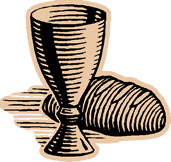I went to two talks by David Crystal at Bangor University yesterday – one was entitled “By Hook or by Crook” and the other was on Shakespeare’s English, focusing particularly on original pronunciation (OP) – a reconstruction of the way people spoke in Shakepeare’s day. Both talks were fascinating and full of information and anecdotes.
In the first David explained how he finds interesting linguistics tidbits wherever he goes, and that when he’s at a loose end, he’ll go wandering in search of them. For example, on a visit to Stratford-upon-Avon, he also went to Snitterfield, a small village nearby where Shakepeare’s grandfather lived. He discovered that the snitter in Snitterfield comes from snyten, an old word for snipe, from the Old English sníte. So he wondered whether there were any snipe around and asked a local, who said that he’d seen a wisp of snipe recently.
The word wisp caught David’s attention, and this set him thinking about where collective nouns like this come from. He discovered that the first known appearance in writing of a lot of them is in lists compiled in monastries in the medieval period. He thought that the monks might have come up with some of these collective nouns as a game – the sort of thing that still happens.
As he was describing some of the linguistic tangents he pursues, I realised that I often do something similar and write about them here. Although I haven’t written any books yet – David has written over 100.
The second talk gave examples of how some passages in Shakespeare work better in OP. Some rhymes and jokes, for example, only work in OP. He gave lots of examples, which I don’t remember, unfortunately.
